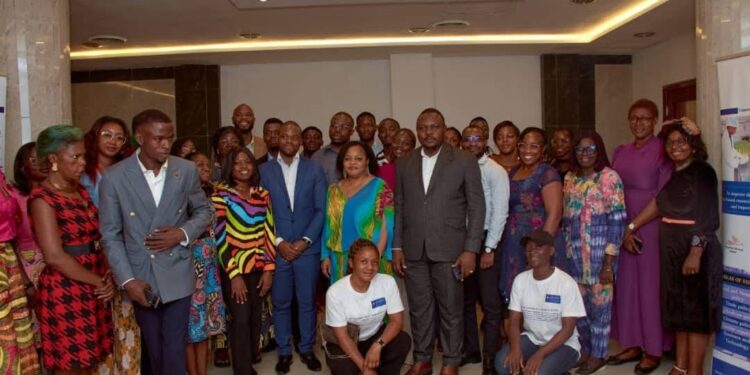Story, Louvier Kindo Tombe
On May 23, 2025, the Cameroon Economic Policy Institute (CEPI) under the Henri Kouam Foundation brought together thought leaders, bankers, and innovators to explore the theme: “Women’s Entrepreneurship in Cameroon: Opportunities, Challenges, and Prospects.”
The session, moderated by Henri Kouam, Trade Expert and Executive Director at CEPI, featured two dynamic panelists: Prof. Kelly Mua Kingsley, Financial Engineer and Director of Finance Operations for the State, and Mrs. L’or Sylvie Mafouo, Regional Director for Yaoundé South at Afriland First Bank
“Women run 20% of manufacturing firms but 40% of total businesses in Cameroon,” Mrs. L’or Sylvie revealed. Yet, despite this dominance in numbers, many women remain locked out of formal finance systems.
She pointed to administrative bottlenecks and limited financial literacy as key barriers. Her advice was practical and urgent:
“Start by opening a bank account. Build a credit history. That’s how financial inclusion begins.”
Citing CEPI’s own research, she underscored the need to strengthen women’s property rights to make financing more accessible.
Finance Expert’s Wake-Up Call: “Think Beyond Borders”
Prof. Kelly Mua Kingsley, also Board Chair of the African Trade & Investment Development Insurance (ATIDI), spoke with candor about what lenders really look for.
“Have a credible business plan. Keep proper records. Show that your business has customers and potential.”
He encouraged women entrepreneurs to look beyond Cameroon’s borders. With the African Continental Free Trade Area (AfCFTA) now active, he said, “women-led businesses have a golden opportunity to export across the continent.”
Trade expert Henri Kouam drew attention to Cameroon’s FCFA 200 billion state guarantee fund — designed to back up business loans. He urged the government to extend these guarantees to more banks, ensuring that women-led enterprises aren’t left out.
Mrs. L’or Sylvie agreed, calling for “clear working modalities so banks like Afriland can benefit from such guarantees and reduce borrowing from external institutions.”
From Talk to Tangible Solutions
During the lively Q&A session, participants asked about accessing loans, building export-ready businesses, and working with local banks.
The panel’s recommendations were hands-on:
– Expand the MINFI loan guarantee scheme to include more banks.
– Train entrepreneurs on export procedures and business planning.
– Encourage formalization and private-sector reforms to simplify access to finance.
Each point struck a chord — because it went beyond theory to focus on what’s doable now.
As one participant summed it up, “It’s not about what we lack — it’s about what we can build together.”








